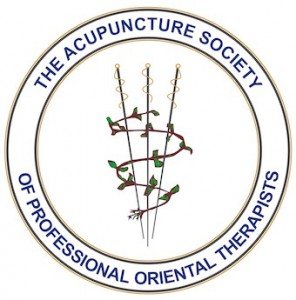Acupuncture
Acupuncture
Acupuncture has been practiced in China and the Far East for thousands of years as an integral part of Traditional Chinese Medicine. Acupuncture is a safe and effective system of healing and can be used to treat people of all ages and a wide range of illnesses. According to Chinese philosophy, our physical health is dependent on a balanced and harmonious flow of Qi, the universal life force. The smooth flow of Qi can be disturbed by a number of factors, amongst them emotional stress, anger, fear or grief, hereditary dispositions or outside influences such as poor nutrition, infection or trauma.
For 3500 years Chinese philosophers doctors and medical practitioners have developed a complex theoretical framework based on practical clinical experience to enable an acupuncturist to restore these imbalances by the insertion of very fine needles into acupoints and meridians or energy channels. In this way an acupuncturist aims to stimulate the body’s own healing abilities and restore the innate equilibrium and harmonious state of balance of the physical and emotional aspects that constitute health and wellbeing.
What does it involve?
An acupuncture session begins with the practitioner taking detailed notes about your own and your family’s medical history, your lifestyle and what improvements you would like to achieve. The practitioner will examine your tongue as in Chinese medicine the colour and condition of the tongue provides a great deal of useful information. The practitioner will also note the strength and speed of the pulses in your wrists (there are twelve meridian pulses in each).
After that you will be invited to lie on a treatment couch whilst the practitioner inserts very fine needles into specific meridian points. These points will be in a variety of sites, including the head, stomach, arms, wrists, legs, back, ankles. It is usual for the practitioner to insert anything from six to twenty needles, depending on the practitioners assessment of your needs and treatment required.
Acupuncturists will always use fresh, sterilized, single use needles for each client and immediately dispose of them, so there is no risk of contamination. The needles are usually removed after fifteen or twenty minutes
You may feel a tingling or a dull ache when the needles are inserted. You should not experience any significant pain. If you do, let your practitioner know straight away.
What are the benefits?
Acupuncture is particularly beneficial for alleviating pain, and many clients report increased vitality and energy after the treatment. Practitioners believe that once blocked and stagnant chi has been released the body is better able to regulate and heal itself.
What might Acupuncture help with:
People come for acupuncture with a wide range of disorders including the following conditions:
- Pain and muscular & skeletal disorders
- Headaches, migraines
- Menstrual and gynaecological disorders,
- Male and female infertility problems
- Respiratory problems
- Anxiety states
- Digestive disorders
- Urinary tract diseases
- Circulatory diseases
- Addictions,
To see a comprehensive list of research fact sheets on acupuncture please click here
